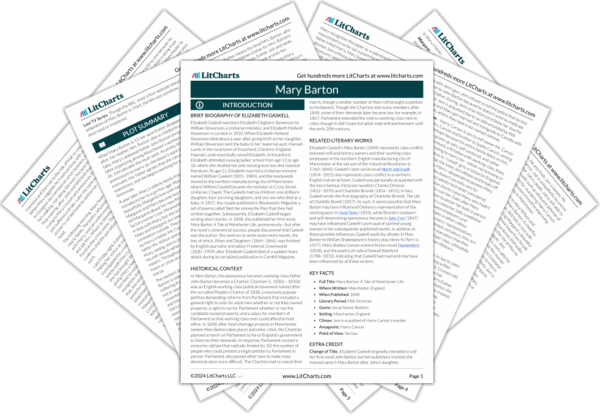Ben Davenport has been described as a pious man, and in dying, he thanks God—suggesting that, in the novel, religious faith helps people cultivate gratitude, accept their fates, and die without fear. Meanwhile, though the novel presents Mary as “flawed” in various ways, she immediately forgets about her selfish interest in seeing Harry when she encounters another working-class family in need of help, emphasizing yet again the practical morality of the working class in the novel.
